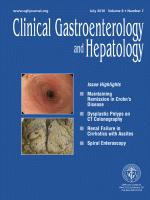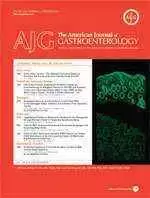
Celiac.com 08/02/2010 - Celiac crisis is a rare, poorly understood, but potentially deadly condition in which patients with celiac disease suffer from severe diarrhea and other serious metabolic changes.
Celiac crisis is specifically defined as acute onset or rapid progression of gastrointestinal symptoms, together with signs or symptoms of dehydration or malnutrition that may be attributed to celiac disease, and which require hospitalization and/or supplemental nutrition.
Celiac.com Sponsor (A12):
In an effort better understand celiac crisis, and to improve diagnosis techniques for the condition, a team of researchers reviewed cases of celiac crisis to identify presenting features, formulate diagnostic criteria, and develop treatment strategies.
The research team included Shailaja Jamma, Alberto Rubio-Tapia, Ciaran P. Kelly, Joseph Murray, Robert Najarian, Sunil Sheth, Detlef Schuppan, Melinda Dennis, and Daniel A. Leffler. They are affiliated variously with the Celiac Center of the Beth Israel Deaconess Medical Center at Harvard Medical School, and with the Mayo Clinic.
The team reviewed cases of biopsy-proven celiac disease, specifically defined as acute onset or rapid progression of gastrointestinal symptoms, together with signs or symptoms of dehydration or malnutrition that may be attributed to celiac disease, and which require hospitalization and/or parenteral nutrition.
The team found twelve patients who met preset criteria for celiac crisis; eleven patients who developed celiac crisis before being diagnosed with celiac disease; eleven patients with increased titres of transglutaminase antibodies; and one patient with low levels of immunoglobulin A. Duodenal biopsy samples for all patients were consistent with a Marsh 3 score; 33% showed total villous atrophy.
All patients showed signs or symptoms of severe dehydration, renal dysfunction, and electrolyte disturbances. All patients required hospitalization and intravenous fluids, six patients required corticosteroids, and five required parenteral nutrition. All patients showed positive response to treatment with a gluten-free diet.
Even though celiac crisis is a rare condition that strikes adults, it is nonetheless serious and carries a high risk of death. In most cases, patients with the condition present clear signs and symptoms, such as severe unexplained diarrhea and malabsorption. Doctors should test such patients for celiac disease, and consider treatment with systemic steroids or oral budesonide, in addition to providing short-term nutritional support until the patients respond fully to a gluten-free diet.
Source:
- Open Original Shared Link




Recommended Comments